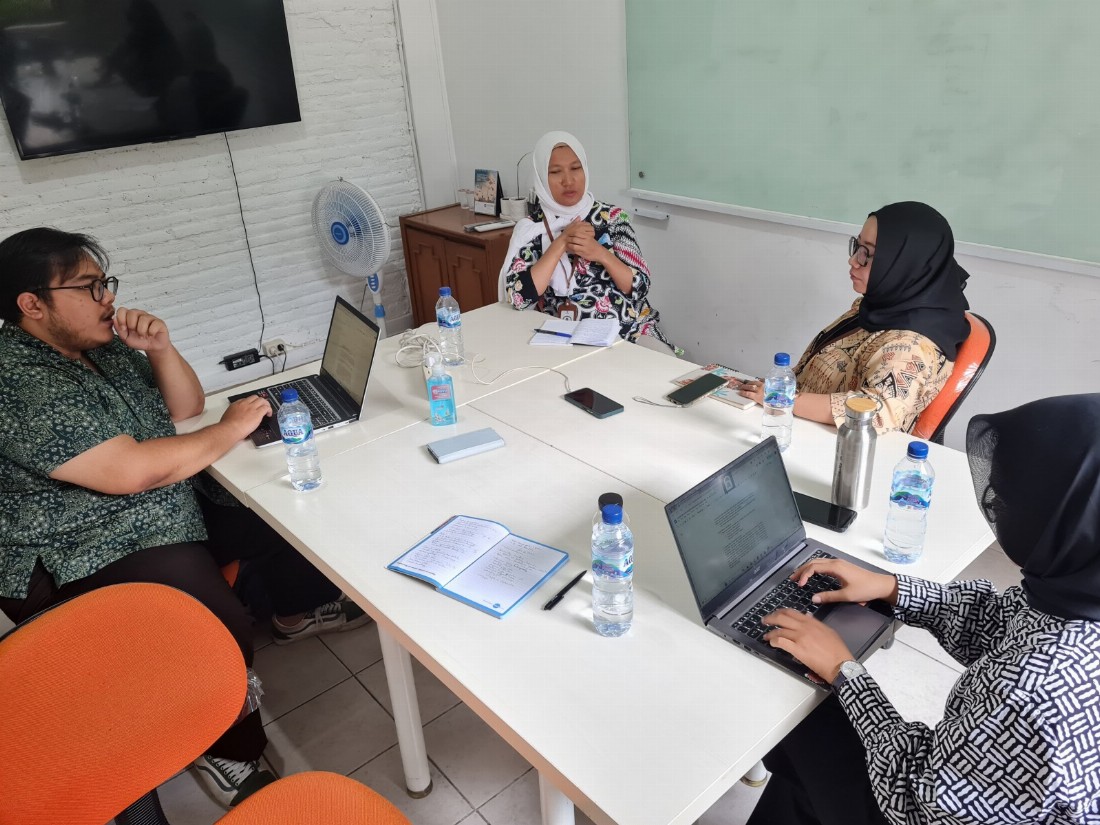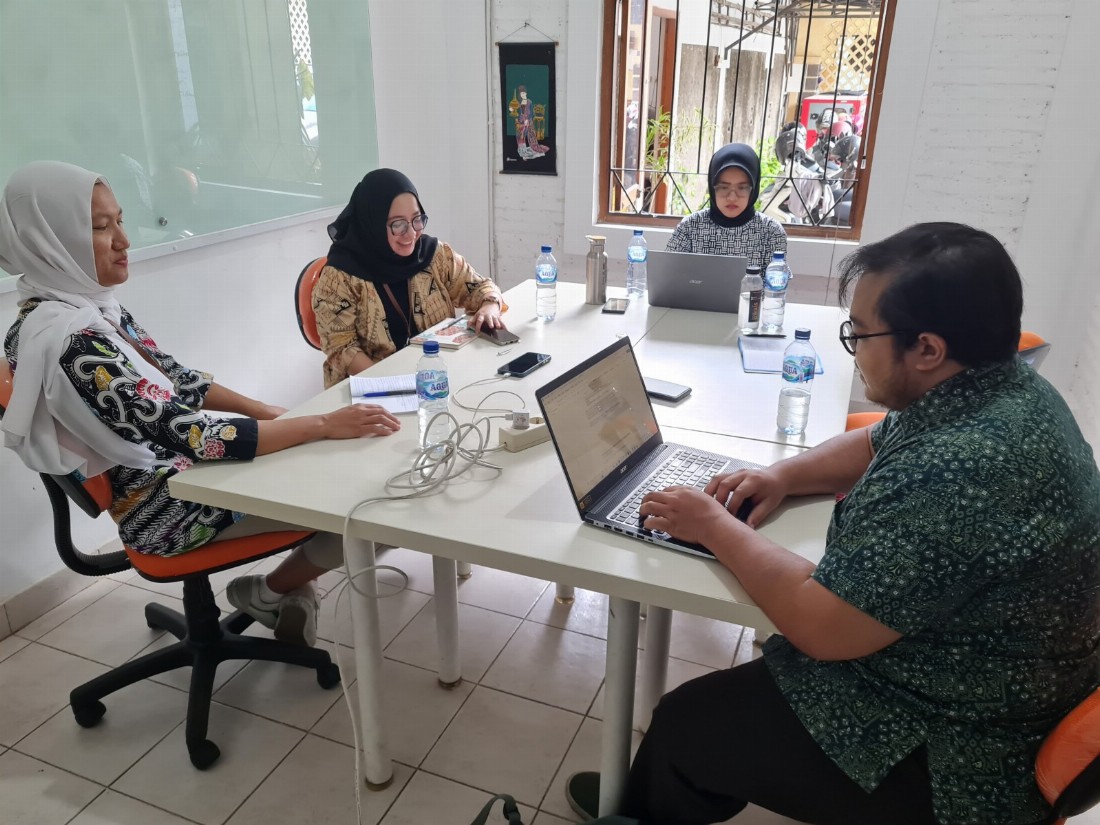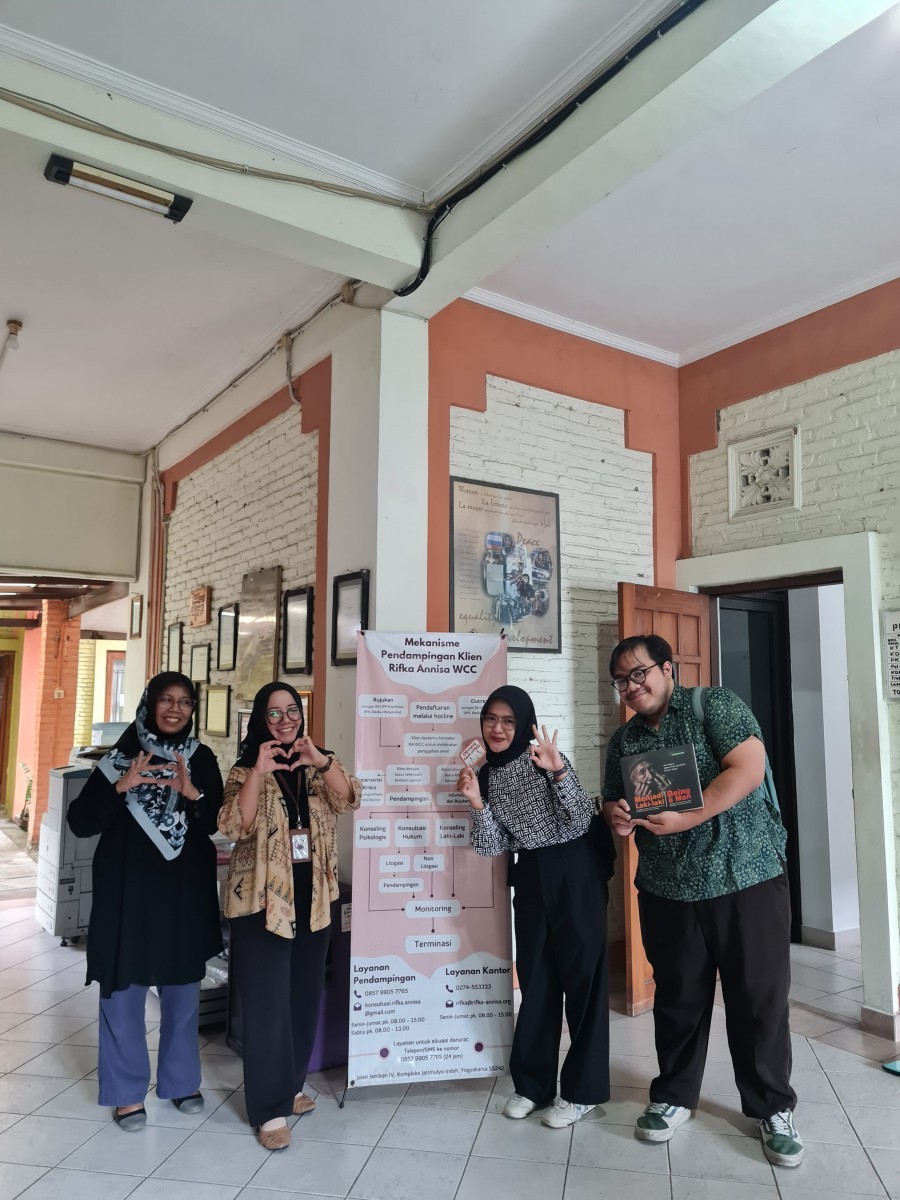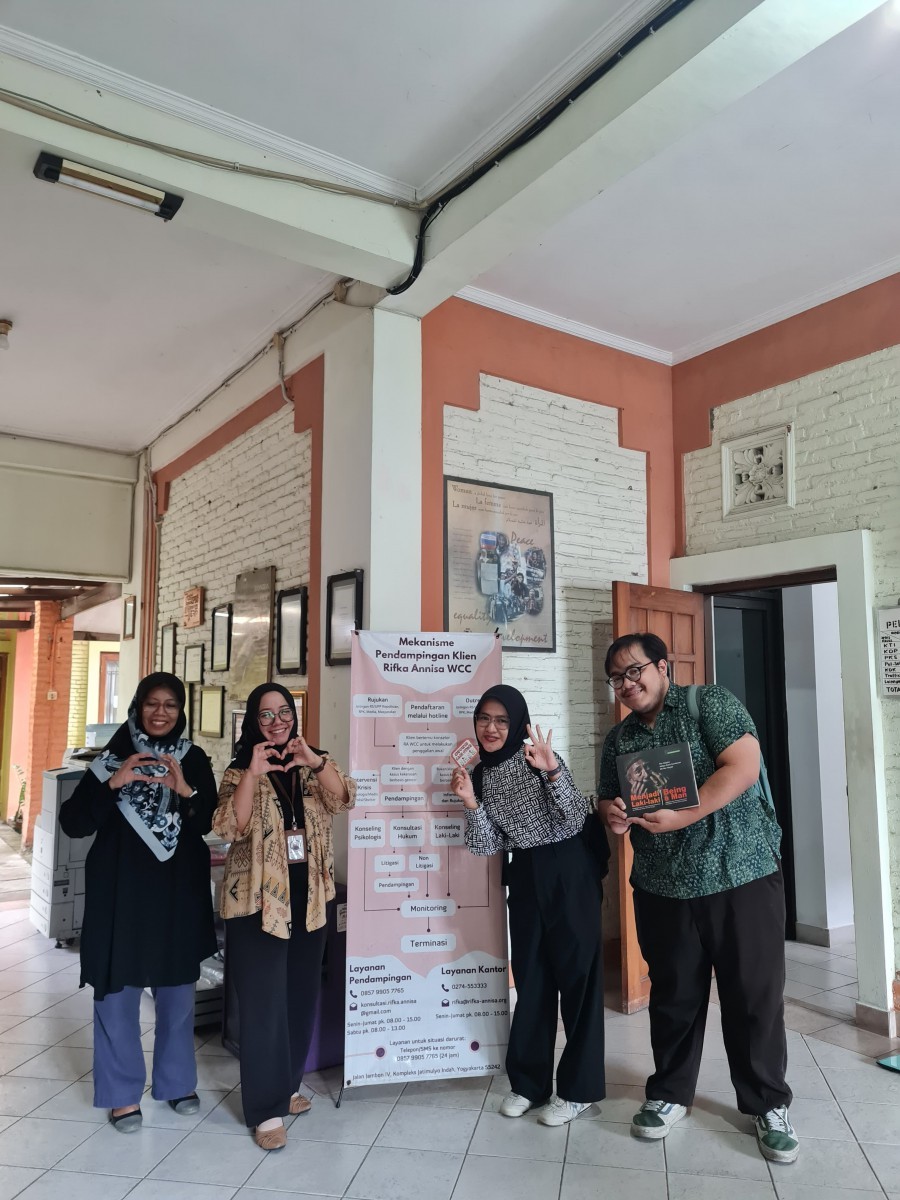indonesia - mitigation
India
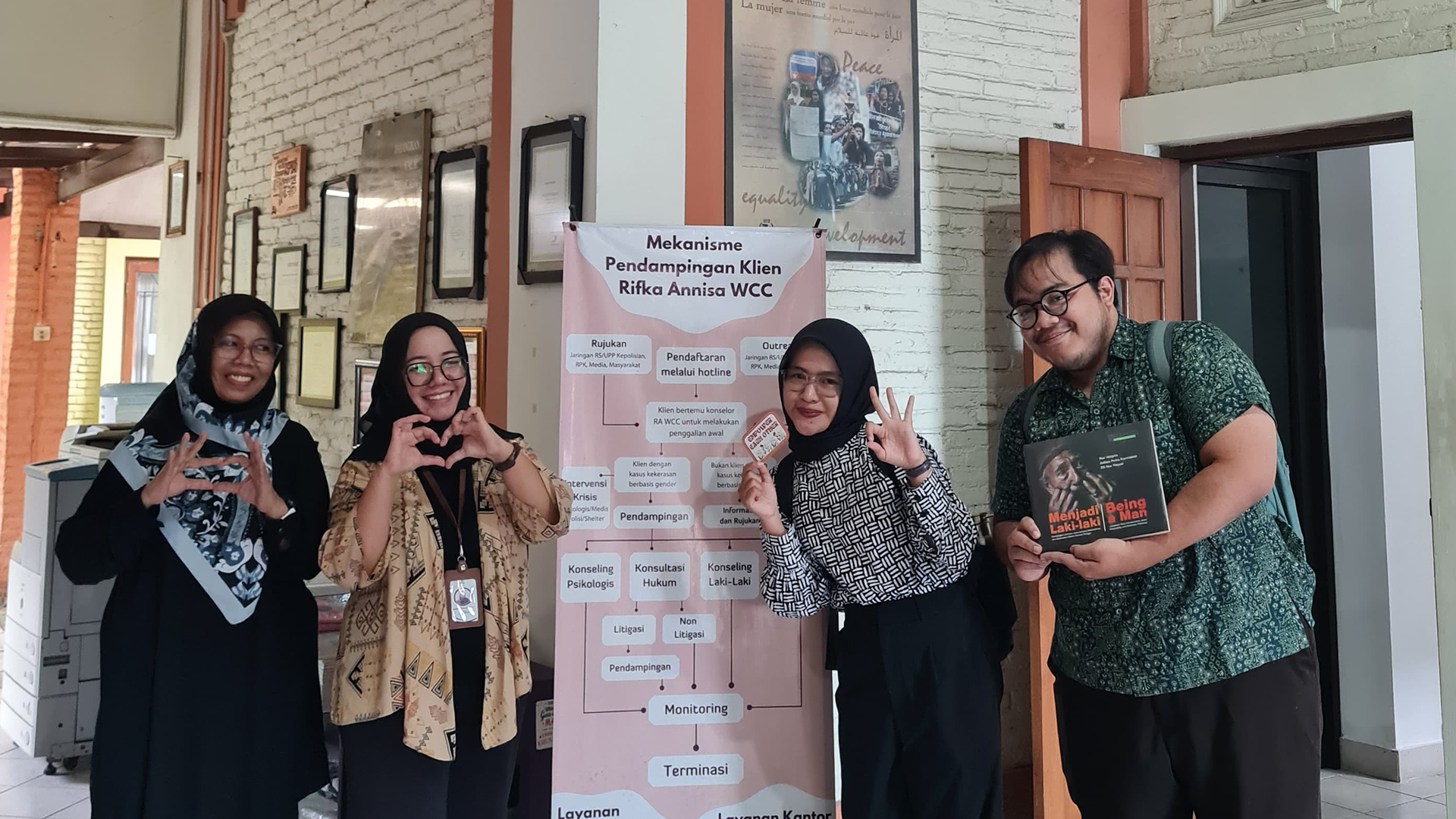
- Actor/Organisation
- India / Rifka Annisa
- Current Title/Designation
- Director
- Expertise/Focus Area
- Gender-Based Violence
- Date of Interview/Research
- Location of Interview
- Rifka Annisa Office, Yogyakarta
- Diplomacy Track
- 2
Starting Point
Rifka Annisa as Women Movement
Rifka Annisa, which translates from Arabic as "Women’s Friend," is a non-governmental organisation that engages in the prevention and response to gender-based violence. In its work, Rifka Annisa has developed its philosophy over time. During their early years, Rifka Annisa focuses on domestic violence. However, realizing the systemic nature of such violence, Rifka Annisa recognizes domestic violence as gender-based violence, and in understanding such violence, it recognizes the intersectionality inherent in the concept of gender-based violence. Further, Rifka Annisa also understands gender-based violence through an ecological approach, meaning that advocacy must be engaged at the individual, family, society, state, and global levels.
Members of Rifka Annisa include staff and volunteers. All staff and volunteers are equipped with sensitivity, knowledge, and skills to prevent and respond to gender-based violence. There are several practice groups within Rifka Annisa including psychology counseling, legal counseling, public relations, internal affairs, and knowledge management.
Ms. Indiah as Women Activist
Indiah, a long-time care worker at Rifka Annisa, has found personal healing through her involvement with the organization. Despite societal pressures to conform to traditional gender roles at home, Indiah is grateful to have a supportive partner who has understood the significance of her work since their student days. This mutual respect allows her to balance her professional responsibilities with personal well-being, transforming her experience at Rifka Annisa into a journey of self-empowerment.
Peace Journey
Rifka Annisa addresses gender-based violence (GBV) through a holistic, survivor-centered approach that operates at the individual, family, community, and state levels. Central to their mission is the practice of accompaniment, where they provide victims with psychological counseling, legal assistance, and psychosocial support, including access to shelters. Rather than dictating a specific course of action, Rifka Annisa empowers survivors to make informed decisions based on their unique needs, helping them navigate the potential consequences of their choices. This flexibility ensures that victims feel in control of their healing process, making Rifka Annisa’s approach deeply personal and supportive. Their trained staff collaborates to offer a well-rounded response, integrating psychological, legal, and social care to best support those affected by GBV.
In addition to victim support, Rifka Annisa actively engages in prevention and community education. Since the early 2000s, they have expanded their outreach to include Community-Based Crisis Centers (CBCC), aiming to raise awareness and strengthen shared values around healthy relationships. Understanding that many women seek to improve their relationships rather than pursue separation or legal action, Rifka Annisa introduced a men’s counseling program in 2007. This initiative addresses toxic masculinity and promotes diplomatic conflict resolution, helping men, often influenced by rigid societal expectations, to better understand and manage their emotions and behaviors. Currently, Rifka Annisa is advocating for mandatory counseling for perpetrators of GBV.
Success Stories
Rifka Annisa as Women Organization
Rifka Annisa faced challenges like societal resistance in the early 1990s when terms like "domestic violence" were not widely understood and categorized as taboo. To combat this, they introduced terms like KDRT (the Indonesian equivalent of domestic violence) to facilitate recognition and acceptance within legal and social contexts. This effort has made Rifka Annisa's initiatives more effective in creating a supportive environment for victims. The organization established the Forum for the Protection of Victims of Violence, successfully collaborating with the Yogyakarta government to provide free counseling for victims. They are also actively promoting mandatory counseling for perpetrators, aiming to address the root causes of violence and nurture long-term change within the community.
As Rifka Annisa has cultivated a supportive environment for victims of gender-based violence, many women who have received assistance have become advocates themselves. Their healing journeys inspire them to share their experiences and recommend Rifka Annisa’s services to others. This peer support provides trust and encourages open dialogue about domestic violence and gender equality, breaking down barriers of stigma and taboo. By sharing their stories, these survivors illuminate the transformative impact of Rifka Annisa's work, motivating more women to seek help and strengthening a resilient community of empowerment and solidarity.
Ms. Indiah as Woman Activist
Ms. Indiah notes that it is important to establish a supportive environment for women activists and this includes applying provision of care to the carer. This includes taking leisure activities during times of exhaustion.
Further, Ms. Indiah notes that the importance of support from home is essential for women activists. Such support includes open communication with spouses and children in relation to the work of women activists who may affect their roles in the household. Ms. Indiah also notes that support from home also includes a separation between work and house. She gave an example of keeping her work private from neighbours so that she can engage with neighbours without having to talk about her work which may become an additional source of stress.
-
Implementing AgencyAWPR Indonesia
-
Lead ResearcherArifah Rahmawati
-
Co-Researcher/Research Assistant(s)Muhammad Ryandaru Danisworo & Lintang Amartya Padmarini
-
Date ResearchJune 2024-November 2024
